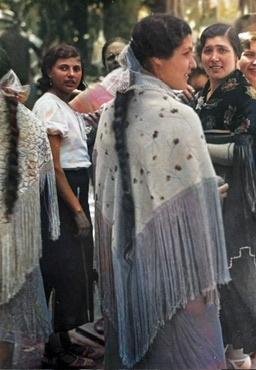What specific local plants were used in traditional Mallorcan medicine for childbirth support, and what effects were they believed to have?
Similar Topics
mallorcan traditional medicine
local childbirth plants
fennel childbirth benefits
rosemary labor effects
marjoram labor pain
lavender aromatherapy childbirth
chamomile labor relief
mediterranean medicinal plants
Traditional Mallorcan medicine, deeply rooted in the island's rich Mediterranean flora, employed several local plants to support women during childbirth. One of the most prominent was fennel (Foeniculum vulgare), which was valued for its carminative and mild uterotonic properties. Expectant mothers were often given fennel infusions to ease digestive discomfort, reduce colic, and promote uterine relaxation, believed to facilitate a smoother labor. Another commonly used plant was rosemary (Rosmarinus officinalis), known on the island not only for its culinary uses but also for its stimulating and antiseptic properties. Rosemary was thought to strengthen contractions and reduce the risk of infection after delivery, making it a trusted remedy in traditional birth practices.
Marjoram (Origanum majorana), native to the region, was often brewed into soothing teas to alleviate menstrual and labor pains by gently relaxing the muscles. Additionally, lavender (Lavandula stoechas), renowned for its calming and anxiolytic effects, was applied in aromatherapy to help reduce anxiety and stress experienced by laboring women. The local chamomile species (Anthemis arvensis or Matricaria chamomilla) was similarly used to provide mild sedation and relieve cramps. Each of these plants reflected a holistic approach to childbirth, where physical comfort, emotional well-being, and natural antisepsis were carefully balanced.
Mallorcan traditional midwives, known as "comadronas," considered these herbs essential tools, often preparing personalized blends tailored to the mother’s constitution and the time during childbirth. These remedies were typically administered as teas, inhalations, or topical compresses, underscoring their versatile role in both preparation for delivery and postpartum care. While modern medical advances have transformed childbirth practices, the legacy of these local botanicals remains an integral part of Mallorca’s cultural heritage, celebrated in both ethnobotanical studies and local festivals dedicated to medicinal plants.
Marjoram (Origanum majorana), native to the region, was often brewed into soothing teas to alleviate menstrual and labor pains by gently relaxing the muscles. Additionally, lavender (Lavandula stoechas), renowned for its calming and anxiolytic effects, was applied in aromatherapy to help reduce anxiety and stress experienced by laboring women. The local chamomile species (Anthemis arvensis or Matricaria chamomilla) was similarly used to provide mild sedation and relieve cramps. Each of these plants reflected a holistic approach to childbirth, where physical comfort, emotional well-being, and natural antisepsis were carefully balanced.
Mallorcan traditional midwives, known as "comadronas," considered these herbs essential tools, often preparing personalized blends tailored to the mother’s constitution and the time during childbirth. These remedies were typically administered as teas, inhalations, or topical compresses, underscoring their versatile role in both preparation for delivery and postpartum care. While modern medical advances have transformed childbirth practices, the legacy of these local botanicals remains an integral part of Mallorca’s cultural heritage, celebrated in both ethnobotanical studies and local festivals dedicated to medicinal plants.
🧩 Related Questions
Related Question
How does Mallorca manage wastewater to ensure it does not harm the island’s natural water bodies?
Related Question
Are there specific brands of organic pet food that are popular or recommended in Mallorca?
Related Question
When is the best season for finding fresh carob products in Mallorca’s markets?
